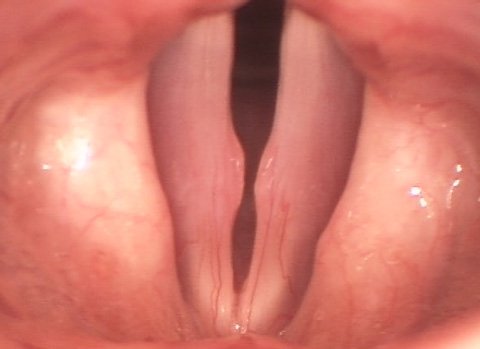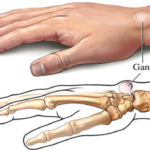Are you struggling with a hoarse or gravelly voice and having difficulty speaking? Do you feel difficulty breathing, especially after exercise? Please don’t take it easy it can be Reinke’s oedema. We are here to help you. Let’s explore together.
Reinke’s Oedema is a health issue that impacts your voice and sometimes disturbs your breathing. This condition often approaches slowly, and maybe you don’t even realize it is happening. From a low-pitched, gravelly, voice to trouble breathing, Reinke’s Oedema can lead to several disturbing symptoms. Whether you’ve currently noticed a change in your voice or you’re looking for answers about what’s causing it, this article will help you understand what Reinke’s Oedema is, why it’s challenging, and what you can do to manage this condition. So let’s explore first what is Reinke’s edema.
What is Reinke’s Oedema?
Reinke’s Oedema, also called polypoid corditis. It is a condition in which your vocal cords swell due to a building-up of fluid. It particularly affects the Reinke’s layer, (a part of the vocal cords crucial for normal voice production). When your vocal area swells, it interferes with how your vocal cords vibrate, leading to a gravelly voice. This condition is not cancerous or pre-cancerous, but it’s an obvious sign of injury, which is usually caused by smoking.
Who Affects the Most?
Reinke’s Oedema significantly affects individuals who smoke and it can sometimes be associated with an under-active thyroid (hypothyroidism) or acid reflux. The swelling can occur on one or both of the vocal cords, which can disturb the usual movement required for your voice production. Eventually, this swelling can lead to noticeable changes in your voice, especially in women whose voices become lower-pitched. However, it can be tricky to identify in men who already have a naturally deep voice.
Why is Reinke’s Oedema Problematic?
One of the most obvious issues with Reinke’s Oedema is the change in your voice. In this condition, your voice often changed to gravelly or raspy. This is not just an aesthetic issue the swelling can also affect your ability to speak comfortably. As the vocal cords swell and become thicker, your voice pitch lowers, and producing sound becomes more difficult. It is common for individuals to experience fatigue after speaking for long periods.
The problem doesn’t stop with the change in your voice. In more severe cases, the swelling can be so severe that it obstructs breathing. At first, you may observe this only during physical activity, but as edema exacerbates, breathing can become trouble even when youare resting. This can lead you to sleep apnea. Sleep apnea is a condition in which your breathing repeatedly impedes and starts during sleep, this condition can seriously affect your overall health.
What Are the Symptoms of Reinke’s Oedema?
Reinke’s Oedema doesn’t always present with obvious symptoms. In fact, it often extends gradually, making it difficult for you to identify when the problem is on track. If you’ve been experiencing changes in your voice, it’s crucial to take notice to the following symptoms:
- Low-pitched voice, especially in women
- Gravelly or hoarse voice
- Feel difficulty speaking loudly
- Difficulty breathing, particularly during exercise
- Feeling lethargic or fatigued after speaking for long periods
- The feeling of discomfort in your throat or airway
- A breathy or stressed voice
These symptoms can differ in intensity depending on how much fluid has built up in your vocal cords. In mild cases, the symptoms may be restricted to voice changes. However, as your condition progresses, the swelling can lead to more serious issues, including breathing difficulties, especially during sleep.
Read also How sleep patterns affacts your fitness
What Causes Reinke’s Oedema?
Reinke’s Oedema occurs when the Reinke’s space, (the layer beneath the surface lining of the vocal cords), becomes swollen with fluid. This swelling is usually caused by extended exposure to irritants. Cigarette smoke is considered to be the most common culprit. That’s why smokers are at high risk for developing Reinke’s Oedema due to the harmful chemicals and constant heat that their vocal cords are exposed to when they smoke.
However other factors are
- Acid reflux because stomach acid irritates the vocal cords or throat
- Underactive thyroid (hypothyroidism) which can lead to hormonal imbalance
How Reinke’s Oedema Affects the Voice
The most prominent characteristic of Reinke’s Oedema is the low-pitched, gravelly voice it causes. As the vocal cords swell, they become heavier, making it difficult for them to vibrate accurately. This may cause a husky, deeper voice. Most women experience gravelly voices, who naturally have higher-pitched voices. For men, this change in pitch may be less evident but can still make their voice sound not normal than usual.
Because the vocal cords can no longer move as freely, you may experience difficulty speaking for longer periods. The further effort needed to produce sound can lead to vocal fatigue, making daily communication more challenging.
Can Reinke’s Oedema Affect Breathing?
Yes, in more severe cases, Reinke’s Oedema can impact breathing. The swelling can become so noteworthy that it obstructs part of the airway, making it hard to get enough air, especially during physical activities. After a while, this difficulty breathing can get worse, and you may even struggle to breathe when you are at rest.
Complications
Sleep apnea is one of the more serious complications of Reinke’s Oedema which is a condition where breathing repeatedly prevents and begins during sleep. This condition may lead to
- Daytime fatigue
- Deprived sleep
- Serious health problems if left untreated
What Can Be Done About Reinke’s Oedema?
Healthcare providers treat Reinke’s Oedema based on the severity of your condition and its underlying causes. But one thing you can do is quit smoking, it can be enough to decrease the swelling and bring back your voice to its normal pitch.
However, if only quitting smoking does not alone give you absolute results, and your condition worsens immediately consult with your healthcare provider, as they can guide you to the appropriate treatment options.
Treatment Options for Reinke’s Oedema
If quitting smoking does not improve your condition, your healthcare provider may suggest one of these treatment options. These options may include:
- Voice Therapy: With the help of a speech therapist you can restore your normal voice. A speech therapist can help you learn how to use your voice more efficiently, reducing damage and improving overall vocal health. In this therapy, your therapist trains you through vocal hygiene, and voice techniques and, helps to prevent further damage.
- Microlaryngoscopic Surgery: In this surgical procedure your surgeon removes excess fluid from your vocal cords, allowing them to vibrate normally yet again. However, surgery has its own risks, especially scarring, which can permanently impact your voice. It’s significant to stop smoking before surgery to minimize the risk of reappearance.
- Medication: If the reason for Reike’s edema is thyroid problems or acid reflux, your healthcare provider may prescribe to treat these conditions. Managing these underlying health issues may reduce irritation and help the vocal cords make well.
What Can You Do to Manage Reinke’s Oedema?
If you’ve been diagnosed with Reinke’s Oedema, there are some steps healthcare providers suggest to manage the condition and prevent it from getting worse. You can follow these instructions which are
- Stop Smoking: This is a significant step. Continuing to smoke will only exacerbate the condition and boost the possibility of recurrence after treatment.
- Avoid Irritants: Avoiding environmental irritants such as chemicals, and pollution can prevent the further damage of your vocal cords.
- Manage Acid Reflux: If acid reflux is a cause, work with your healthcare provider to manage this condition with medications, lifestyle changes, or diet adjustments.
- Take Care of Your Voice: Avoid hurting your voice by speaking loudly for longer periods, and give your vocal cords time to relax if they feel drained.
Conclusion
Reinke’s Oedema is a serious condition that can impact both your voice and your ability to breathe. It mainly affects smokers, but other factors like thyroid problems and acid reflux can also lead to Reinke’s oedema. If you’ve noticed changes in your voice or are having trouble breathing, it’s important to seek medical help as soon as possible. Early treatment, especially quitting smoking, can prevent the condition from aggravation and help bring back your normal voice. By taking preventive measures to care for your vocal cords and avoid irritants, you can manage Reinke’s Oedema and protect your overall health.







